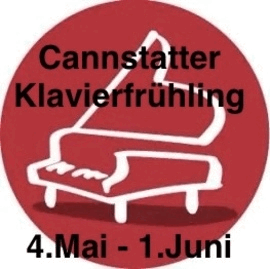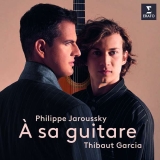À sa guitare, das erste gemeinsame Album des Countertenors Philippe Jaroussky und des Gitarristen Thibaut Garcia, ist nach einem Lied von Francis Poulenc benannt, welches dieses 22 Titel begreifende und 400 Jahre Musik von Komponisten aus acht Ländern umfassende Programm einleitet. Es ist an sich eine schöne und abwechslungsreiche Sammlung, doch so richtig glücklich werden kann ich dabei nicht. Jarousskys Stimme, sonst so reich und farbig, klingt seltsam eng, dünn und fast monochrom, manchmal säuerlich und generell recht artifiziell. Der eklatanteste Misserfolg ist wohl Schuberts Erlkönig und die besten Stücke sind (neben den paar Solos von Garcia) Luiz Bonfas Manhã de Carnaval aus dem Film Orfeu Negro und Dowlands Come again. Aber weder in Giordanis Caro mio ben, noch in Rossinis Di tanti palpiti oder Mozarts Abendempfindung kann mich Jaroussky überzeugen. Dabei ist man immer wieder versucht, hinter die Stimme zu hören und dem zu lauschen, was der exzellente Thibaut Garcia auf der Gitarre spielt…
À sa guitare, the first joint album by countertenor Philippe Jaroussky and guitarist Thibaut Garcia, is named after a song by Francis Poulenc, which introduces this 22-track program spanning 400 years of music by composers from eight countries. It’s a nice and varied collection in itself, but I can’t really get happy with it. Jaroussky’s voice, otherwise so rich and colorful, sounds strangely tight, thin and almost monochromatic, sometimes sour and generally quite artificial. The most glaring failure is probably Schubert’s Erlkönig, and the best pieces (besides Garcia’s couple of solos) are Luiz Bonfa’s Manhã de Carnaval from the film Orfeu Negro and Dowland’s Come Again. But neither in Giordani’s Caro mio ben, nor in Rossini’s Di tanti palpiti or Mozart’s Abendempfindung can Jaroussky convince me. At the same time, one is always tempted to listen behind the voice and to what the excellent Thibaut Garcia plays on the guitar….






















